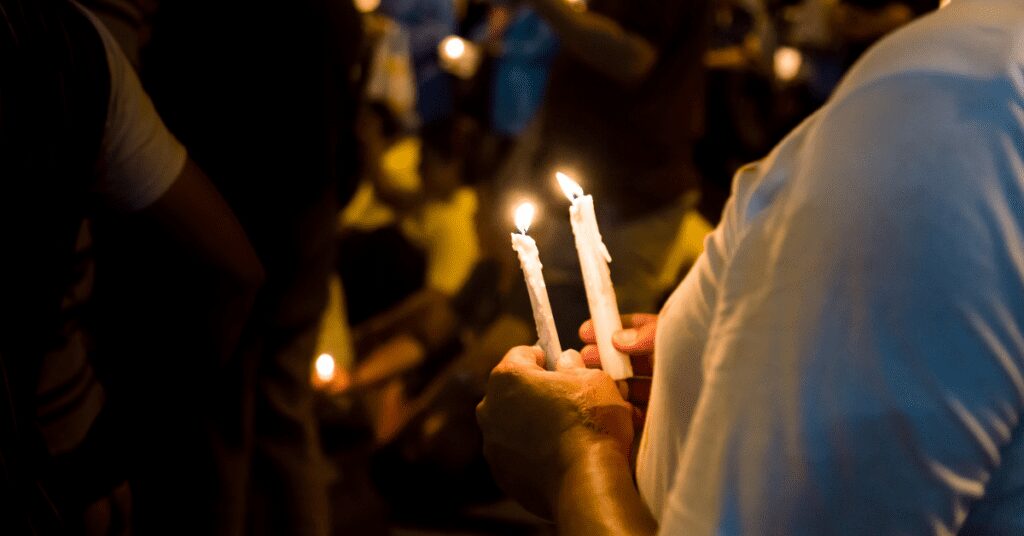A few weeks ago, I wrote a prayer that began with the plea,
“My God,
can we not go one week,
sabbath to sabbath,
without a mass shooting?”
It ended with the whisper of the Spirit:
“Yes,
YES –
you
should do that.”
You should do that
We have all experienced the sinking of the heart that accompanies news of another mass shooting, another local murder, another accidental injury to a child stumbling across a gun, more force, more death, more devastation. For those of you who have personally experienced such violence, I am sorry for raising the trauma once more.
But we must do something. We, the church, are an instrument of God’s Spirit of peace in the world. We are commanded to love God and the people of God. We follow in the footsteps of the prophets, who want to change the very landscape around us, bringing down the mountains and filling in the valleys of shadows.
And we are, Paul writes, not to be conformed to this world, but to be transformed by the renewing of our minds (Romans 12:2)—and, I would add—to be transforming influences in our communities, in our creation.
Some thought and prayers
In Whom Shall I Fear? Urgent Questions for Christians in an Age of Violence, I suggest that we begin always in prayer. Thoughts and prayers get a bad rap in this day and age for good reason: when soft words are a cover for inaction, inertia, infidelity to the causes of peace and nonviolence, they become hypocritical.
But our life with God is grounded in prayer. Prayer becomes the seed from which grow the fruits of the Spirit.
“Of course it is the place and the call of the church to remember and pray for the dead and the endangered, for the bereaved and the injured, for the innocent and the guilty. It is a core part of our mission to offer thoughts and prayers. But our prayers must include confession and the promise of repentance, hope and the plea for strength to do what is right, a calling to account of those in power—especially when we hold power ourselves—and the admonition of evil and yearning for the kingdom of God.” (Whom Shall I Fear? p. 101)
We live and serve and worship in a variety of communities and cultures in this country, and some are suspicious of conversations about gun violence. What we all have in common is a dismay at the news of increasing gun violence and a commitment to the Christ who loved the little children and who blessed the peacemakers. I have no doubt and every confidence that each and any church community can find within itself some means and measures, consistent with its culture, to do the work of the gospel to reduce the violence that surrounds us.
Prayer in action
I suggest in the final chapter of Whom Shall I Fear? that the gifts of the Spirit among our churches to confront and combat gun violence might be as multiple and varied as the communities we serve.
- One church might be well-situated and inspired to offer genuine “thoughts and prayers”: meaningful vigils that bring people together, acknowledge our grief and helplessness, and galvanize spirits into new and hopeful action.
- A church with money to invest might develop a policy of investor activism to influence the gun industry toward safety and violence reduction—or an ethical screen to disinvest from the manufacture and distribution of deadly weaponry.
- A church situated in an area of chronic violence might take to the streets, blessing and redeeming the street corners bathed in blood, “For blood pollutes the land” (Numbers 35:33), as a witness to the persistence of God’s justice and mercy in the face of chronic sin.
- A church blessed with artists might create an installation in remembrance of those who have died or been otherwise affected by gun violence, to raise awareness in the community and bring hope to those who thought that no one was paying any attention.
- Churches that have family ministries or are open to the public have plenty of opportunity to promote gun safety in the home. In Children Under Fire: An American Crisis, John Woodrow Cox argues that, “If children did not have access to guns, thousands of them would be rescued each year from death or disfigurement and thousands more from a lifetime of guilt over firing the round that struck their friend or sibling … If children did not have access to guns, well more than half the school shootings over the past twenty years would never have happened.”(Children Under Fire, Woodrow Cox, p. 290-91) A simple safety card, handed out at Sunday School registration and available in the pamphlet stand, could well save a life.
- Churches can investigate ways to support the mental health as well as the spiritual health of their members and community; more than half of the deaths by gun each year in the United States occur by suicide. But we do not have to live in despair.
“So far as it depends on you …”
When my church sends out condolence cards to communities affected by high-profile gun violence, we include not only our thoughts and prayers, but a commitment to work to end gun violence and its causes. The situation can feel overwhelming, but with God’s help and the inspiration of the Holy Spirit and the communion of saints, there are steps that we can take to make our communities that little bit more informed, that little bit more aware, that little bit more hopeful, and that small piece more peaceful.
“If it is possible, so far as it depends on you, live peaceably with all. … Do not be overcome by evil, but overcome evil with good.” (Romans 12:18, 21)

